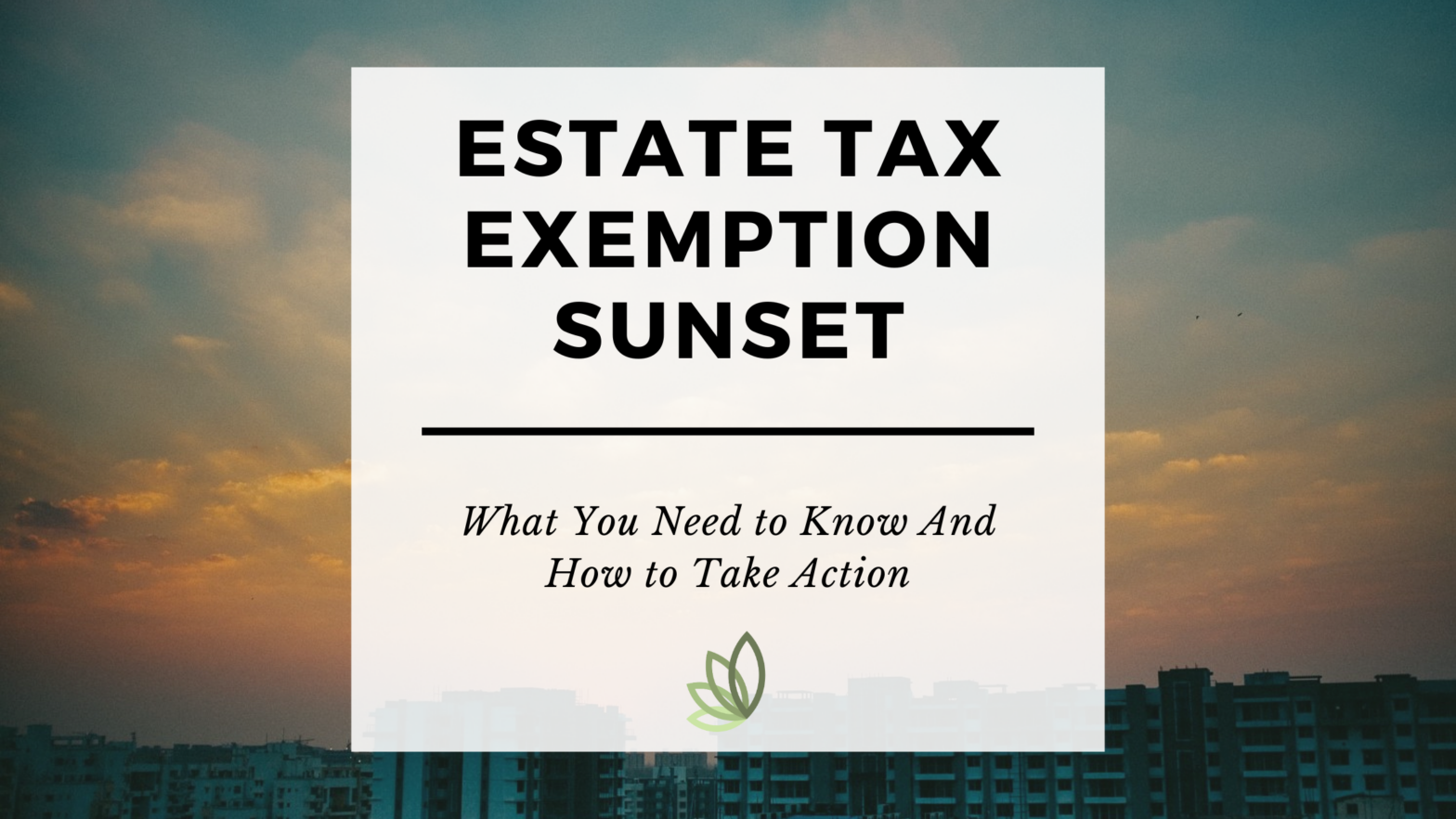
Estate planning is a crucial component of managing your financial legacy and ensuring your loved ones are well provided for after your passing. One aspect of estate planning is understanding the estate tax exemption and awareness of any changes to the law.
Understanding the Estate Tax Exemption
Estate tax is a federal tax imposed on the transfer of a person’s wealth upon their death. An estate tax exemption functions as a safeguard, allowing a portion of the estate to remain untaxed. If your wealth is below this amount, you don’t pay any estate tax.
In recent years, the estate tax exemption has been relatively high, providing individuals and families with substantial protection from having to pay estate taxes. The federal estate tax exemption for an individual in 2024 is $13.61 million, and for a married couple, it is effectively $27.22 million when proper estate planning strategies were utilized1.
The Sunset Provision
The “sunset provision” is a term used to describe the expiration or reduction of a tax benefit, such as the estate tax exemption. In the context of estate taxes, this means that the currently high exemption levels are set to revert to lower levels at a specified future date.
The sunset provision for the estate tax exemption was established under the Tax Cuts and Jobs Act (TCJA) of 20172. According to the TCJA, the estate tax exemption was set to revert to approximately half of its then-current value after December 31, 2025. This would result in a significantly lower exemption threshold, potentially subjecting more estates to federal estate taxes. Although the estate exemption amount is set to revert on this date, legislators can vote to adjust the exemption amount at any time.
Taking Action to Protect Your Assets
Given the potential decrease in the estate tax exemption, it’s essential to take proactive steps to protect your assets from higher estate tax. Below some actions you can consider:
- Review Your Estate Plan with your Attorney
- Consider Gifting to Heirs During Your Lifetime
- Explore Trusts and Other Estate Planning Strategies
- Consider Using Life Insurance to Pay Estate Taxes
- Consider Charitable Gifting
Seek guidance from your estate planning attorney, financial advisors, and tax professionals who can help you develop a plan tailored to your needs. The estate tax exemption sunset is a potential challenge that requires careful consideration and proactive planning. By taking action now, you can protect your assets and ensure your heirs receive the maximum benefits from your estate. Estate planning is not a one-time task but an ongoing process that should be revisited and adjusted as your financial circumstances and the tax landscape evolve. SFMG will continue to monitor changes in tax laws and estate tax exemption levels.
Sources:
1https://www.irs.gov/newsroom/estate-and-gift-tax-faqs
2https://www.irs.gov/newsroom/irs-provides-tax-inflation-adjustments-for-tax-year-2024#:~:text=Estates%20of%20decedents%20who%20die,%2417%2C000%20for%20calendar%20year%202023.
Disclosure: This summary is for educational purposes only and is not intended to be taken as investment advice or a recommendation. Although we make every effort to be accurate in our content, the data is derived from other sources. While we believe these sources to be reliable, we cannot guarantee validity. Individual facts and circumstances can substantially impact the outcome of these scenarios so please review your personal situation closely with your advisor. SFMG Wealth Advisors is an investment adviser registered with the United States Securities and Exchange Commission (SEC). Registration does not imply a certain level of skill or training.
